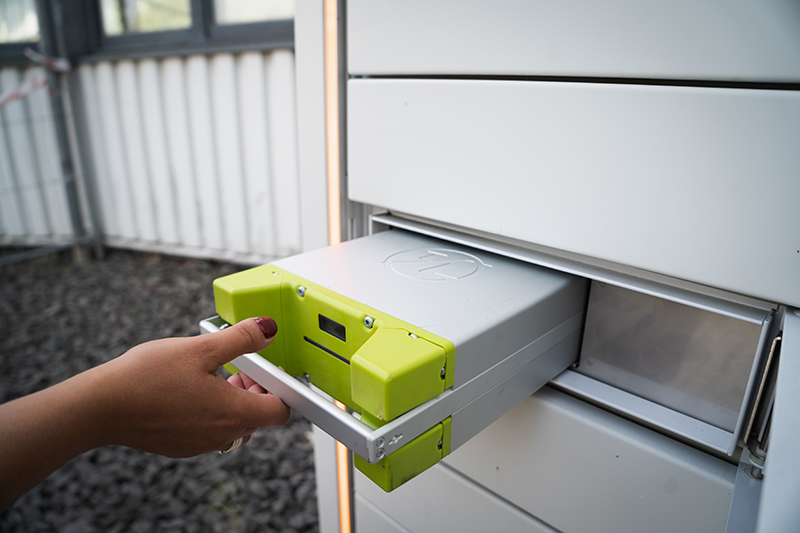Residential Clean Energy
Residential Battery Storage
How They Work

Batteries are devices that store energy and then release it when the power is needed. Pairing battery storage technologies with rooftop solar (photovoltaic) panels is rapidly becoming more common as battery technology and performance improves. The ability these technologies give to residential electric customers to store excess solar energy, increase self-consumption and become more energy independent appeals to those wanting or needing to keep essential devices powered on through extreme weather events.
Battery storage systems paired with rooftop solar panels are available in two main battery types: lead-acid and lithium-ion, with most modern systems comprised of lithium-ion batteries. Further driving the prevalence of lithium-ion batteries is decreasing prices due the growth of the electric vehicle market in which lithium-ion batteries are an essential component. Find information on residential battery storage here.
What Assistance Is Available for Me?
The federal government offers a tax credit of up to 30% of the cost of the purchase and installation of a residential battery storage system (no maximum). Find more information about the federal tax credit for residential battery storage systems here.
What Products Are Eligible?
To be eligible for the federal tax credit the batter storage technology must have a capacity of not less than 3 kilowatt-hours.
Important Dates
The federal tax credits are available for products purchased and installed between January 1, 2023, and December 31, 2032.
